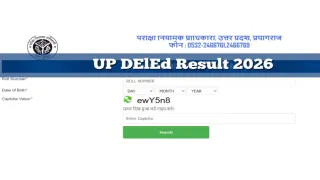In a sharp rebuke of state-level inaction, the Supreme Court of India today summoned Chief Secretaries of nearly all States and Union Territories — except West Bengal and Telangana — for failing to file compliance affidavits implementing the Animal Birth Control (Dogs) Rules, 2023 (“ABC Rules”). The court reminded the defaulting jurisdictions that on August 22 they had been given clear deadlines to submit these affidavits — only West Bengal, Telangana and the Municipal Corporation of Delhi appear to have complied.
The bench, consisting of Justices Vikram Nath, Sandeep Mehta and N V Anjaria, expressed frustration at the absence of representation from the non-filing States/UTs and insisted that the Chief Secretaries must appear in person on November 3, 2025, to explain why they ignored the directives. The court cautioned that costs or coercive measures could follow if compliance is not shown. This move signals the Court’s intent to treat the stray-dog issue as a national rather than a purely municipal concern, demanding uniform action under the ABC Rules and stressing that public safety — particularly the prevention of dog-bite and rabies incidents — cannot be left to ad-hoc local responses.
Background & Expanded Jurisdiction
The genesis of the case lies in the Court taking suo motu cognisance on July 28, 2025, of media reports highlighting the stray-dog menace and its impact on children and public safety. On August 11, a two-judge bench ordered that all free-ranging dogs in the Delhi-NCR region be picked up within eight weeks and moved to shelters — rejecting the then-applicable ABC Rules which call for dog release post-sterilisation.
Following objections from animal-welfare groups and legal concerns, the case was transferred on August 14 to a three-judge bench (Nath, Mehta, Anjaria) for re-hearing. On August 22, the Court modified its earlier order: treated and vaccinated dogs must be released back into their original localities except in cases of rabies infection or aggressive behaviour. The Court also expanded the case scope to cover all States and UTs, making it a nationwide issue.
Key Provisions of the ABC Rules & Legal Conflict
The ABC Rules, framed under the Prevention of Cruelty to Animals Act, 1960, set out a protocol to capture, sterilise, vaccinate for rabies, de-worm and then release stray dogs back to the same locality — relocation or permanent removal is not permitted. The Rules were designed to ensure humane population control while preventing rabies outbreaks.
The Court, however, has questioned whether the “release-back” provision adequately safeguards citizens. It called the model impractical in urban settings and highlighted the growing conflict between animal rights and human safety. The amicus curiae assisting the Court noted that the right to move freely without fear of dog attacks forms part of the citizens’ fundamental rights under Article 21 of the Constitution.
Compliance Status & Court Summons
Despite the August 22 direction for States/UTs to submit affidavits detailing steps taken under the ABC Rules — including mapping stray populations, setting up shelters, sterilisation drives and creation of feeding zones — many jurisdictions have failed to comply. The Court recorded that only West Bengal, Telangana and the MCD had filed affidavits, while all other States/UTs remained in default.
The Court has now ordered the Chief Secretaries of the defaulting jurisdictions to appear personally on November 3, 2025, and show cause for non-compliance. It warned that repeat non-filers could face monetary costs, coercive actions, or even public hearings in an auditorium to ensure accountability. Justice Vikram Nath remarked that the continued inaction portrays India poorly in the eyes of the world and that repeated incidents of dog attacks are unacceptable.
Enforcement Gaps & Ground Challenges
Civic bodies have cited major logistical and legal barriers. For instance, the Municipal Corporation of Delhi said that while it is capturing aggressive or diseased stray dogs and providing care, the ABC Rules prevent long-term confinement, creating a dilemma between public safety and statutory compliance. Many municipalities lack adequate shelter capacity and trained personnel to conduct sterilisation drives at scale.
Animal-welfare groups, on the other hand, argue that mass removal or permanent confinement of dogs violates animal-protection laws and ecological balance. They recommend a science-based approach: sterilisation, vaccination, and controlled feeding to reduce aggressive behaviour. Experts from the Animal Welfare Board of India have also called for better funding and inter-departmental coordination to operationalise the ABC framework effectively.
Statements from the Bench
During the hearing, Justice Nath questioned the absence of compliance by Delhi despite repeated notices and wide media coverage. “Your officers don’t read newspapers or social media? Once they are aware, they should come forward,” he observed. The bench warned that further delays could attract contempt proceedings and directed all State Chief Secretaries to attend the next session without fail.
The judges reiterated that the goal is not to vilify stray animals but to ensure safe coexistence and responsible governance. The Court also urged the Central Government to coordinate with local bodies to ensure that sterilisation and vaccination targets are met within a fixed timeframe.
Implications & Next Steps
The Supreme Court’s summons marks a turning point in India’s management of stray dogs and public-health policy. If the States fail to comply by November 3, the Court is expected to issue stringent orders, possibly including a monitoring committee to track ABC implementation and funding utilisation. Legal experts suggest this could set the stage for a uniform national policy on stray-dog management and humane sterilisation practices.
The Court’s next hearing is likely to determine whether additional punitive or structural orders will be issued. Meanwhile, animal-rights advocates, civic authorities, and health experts await the outcome with the hope that this intervention will finally lead to a sustainable and humane solution balancing both public safety and animal welfare.
Case Background
The Supreme Court’s involvement began after a series of alarming reports on dog-bite incidents in Delhi and Kerala, followed by a Times of India article titled “In a city hounded by strays, kids pay the price.” The initial directions from Justice Pardiwala’s bench in August were later stayed by the larger bench led by Justice Nath. The three-judge panel then expanded the scope nationwide, clubbing similar petitions from different High Courts to streamline policy enforcement.
As the case resumes next week, the focus will be on whether State governments have genuinely acted on sterilisation, vaccination, and shelter initiatives under the ABC Rules. The outcome could redefine how India handles the intersection of animal welfare, public safety, and administrative accountability in years to come.
Also Read: Samsung Galaxy Watch8 adds first-ever antioxidant tracking























